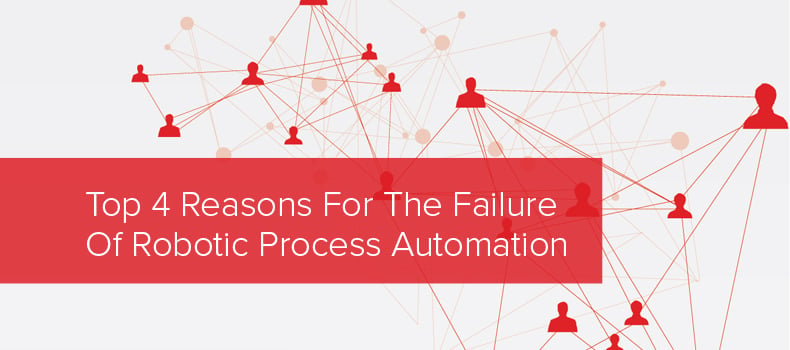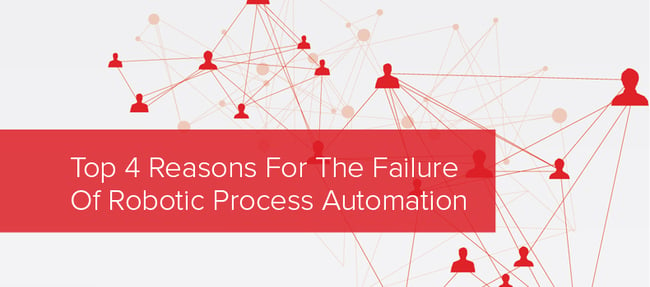Robotic Process Automation (RPA) is the use of software (the ‘robot’ or 'bot' in this scenario) to capture and interpret data in order to automate processes, data manipulation and communications across multiple systems.
It's used to automate the slow, manual tasks that steal time from your employees and can help you scale the business processes that you’re already working on without taking up any more time or resource.

When's it done correctly, RPA can be the fastest and most efficient way for you to acquire, enhance and deliver information and can help your business reduce costs and save time for key employees.
However, without the right structure, logic and set-up, RPA projects can go wrong and many organisations are failing to implement RPA at scale.
"While RPA can transform the economics and service level of current manual operations, we have seen as many as 30 to 50% of initial RPA projects fail." (Get ready for robots, EY)
For some companies, the reason they're failing to implement RPA properly, is simply because they're getting stuck in the early stages of process automation - especially when the process being automated involves documents.
This is because there are lots of small repetitive tasks that can automated, that add some value, but don't take advantage of the wider reaching benefits of RPA. In order to move past this, it's important that you review and assess the different processes in the business that could be right for automation.
Here are some of the other reasons that RPA projects fail:
1) Lack of a holistic platform
Research shows that more than 50% of RPA projects fail to grow beyond 10 bots and more than 70% of RPA projects plateau at fewer than 50 bots.
Companies are failing to meet their RPA targets and a big part of it comes from the lack of a holistic platform and the option for scalable modules and intelligence. RPA technologies are more likely to succeed when combined with other intelligent automation solutions such as cognitive capture and process orchestration.
2) Unrealistic expectations
It's not uncommon for organisation's to set goals and expectations when they first start an RPA project, but these expectations have to be controlled. RPA can be very powerful and bring great benefits, but when working alone, there's only so much it can be used to automate and expectations need to be aligned with what's possible rather than what you wish it could do.
3) Underestimating the political implications
For those that buy into automation and with it, RPA, it doesn't feel like there's any reason not to do it - but for some people in the organisation, it might not be such an easy sale. Without buy-in from the right people, RPA projects can quickly come to a stand still. When engaging in these projects, it's encouraged that you think hard about the potential blockers and work with them to overcome any fears or reasons not to use RPA.
4) Lack of alignment with stakeholders
Similar to point 3, a lack of alignment with the key stakeholders in the business will quickly shut an RPA project down. This goes back to not only underestimating political implications but also to unrealistic expectations. If you can manage the expectations of those involved and make sure the objectives of RPA align with business goals and objectives, there's a better chance of getting the right people behind the project, minimising the risk of failure!
In a our webinar, Applying Intelligent Automation to radically transform your business, we talked about some of these reasons and why RPA projects fail. In the video, we also talk about the challenges CEOs are facing and the expected results of RPA:
Learn more about our Intelligent Automation platform here.
This post was originally released in June 2020 and has been updated and re-published.

